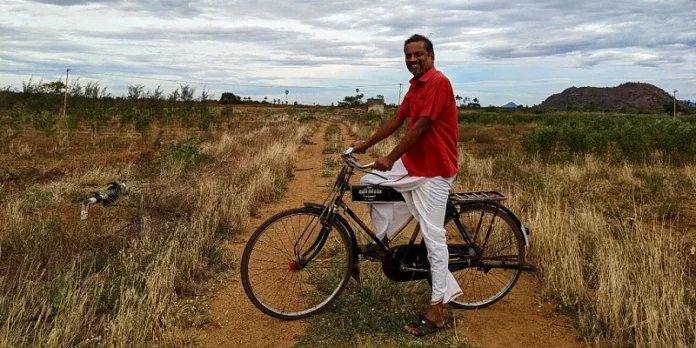Zoho’s billionaire founder Sridhar Vembu moved to a small village named Tenkasi about three years ago and has been working from there ever since
India’s first software unicorn Zoho is shunning metro cities and trying to go to the heartlands of the country. Zoho’s billionaire founder Sridhar Vembu moved to a small village named Tenkasi about three years ago and has been working from there ever since.
In an interview with ETCIO in Bengaluru, Vembu mentioned the importance of developing talent in rural areas and how he was giving back to the community.
“In Tenkasi district, we are distributing electric carts to the panchayats to replace bullock carts. We run a school, and a clinic. I believe life in a village is more fulfilling as you become a part of the community. Many of our employees from big cities are also keen on moving to the village life. We are fully supporting that,” Vembu was quoted saying.
“In lieu of the training, we do not make our employees sign any bonds. They can in fact, leave at a one day notice. Yet, we have 8.5% attrition, which is the lowest in the industry. I believe if you invest in people, people value that.”
— Vembu
Zoho has identified five new locations to build its regional hubs at Madurai, Coimbatore, Thanjavur, Tirunalvali and Tenkasi. The software firm is also planning to build its presence in North India and has been looking for a rural hub in Uttar Pradesh.
Incidentally, Zoho already has 20 rural offices including one in Tenkasi where over 500 employees work. The company plans to hire about 2,000 new employees in these rural offices.
Vembu said the company planned to hire locally. In fact, 80% of Zoho’s new hires will be from villages across the country, and only about 20% of employees will reside in larger cities. While Chennai will continue to be the company’s headquarters, the bulk of the workforce will be based in these hub and spokes.
However, hiring from villages and small towns has a big challenge. Even skilled professionals are often not comfortable speaking in English. But that is something that Zoho encourages. “All our meetings happen in Tamil and English. That allows people from other regions to also understand the language and communicate easily. But at the time of hiring, English is not a requirement for us. I believe demanding English proficiency in the company is detrimental for the country. We are excluding 90% of the talent by doing that. I bet only 2-3% Indians can fluently speak English. Japan, Korea, Germany also have poor English proficiency among their population but by focusing on their local language, they have been able to become leaders in technology space. We can follow the same model,” Vembu said.
Hiring in villages is good for business. While currently, only about 20% of Zoho’s revenues come from the Indian market, India continues to be its fastest growing market, driven by demand from nearly 50,000 small and medium businesses, most of which are based in smaller towns and even villages.While its international business grew at 25% last year, India grew at a whopping 63%.
To build local talent, the company has setup Zoho Schools of Learning. Students receive practical exposure to actual work, along with a stipend for the entire duration of the course. To qualify for ZSL, age of the student should be within the range of 17 to 20 and they need not have any academic qualification higher than Class 12 or 10+3 diploma.
ZSL has become a big source of talent for the company. But more importantly, such hires have stuck around with the company much longer. “In lieu of the training, we do not make our employees sign any bonds. They can in fact, leave at a one day notice. Yet, we have 8.5% attrition, which is the lowest in the industry. I believe if you invest in people, people value that,” Vembu said.
************************************************************
Readers
These are extraordinary times. All of us have to rely on high-impact, trustworthy journalism. And this is especially true of the Indian Diaspora. Members of the Indian community overseas cannot be fed with inaccurate news.
Pravasi Samwad is a venture that has no shareholders. It is the result of an impassioned initiative of a handful of Indian journalists spread around the world. We have taken the small step forward with the pledge to provide news with accuracy, free from political and commercial influence. Our aim is to keep you, our readers, informed about developments at ‘home’ and across the world that affect you.
Please help us to keep our journalism independent and free.
In these difficult times, to run a news website requires finances. While every contribution, big or small, will makes a difference, we request our readers to put us in touch with advertisers worldwide. It will be a great help.
For more information: pravasisamwad00@gmail.com



